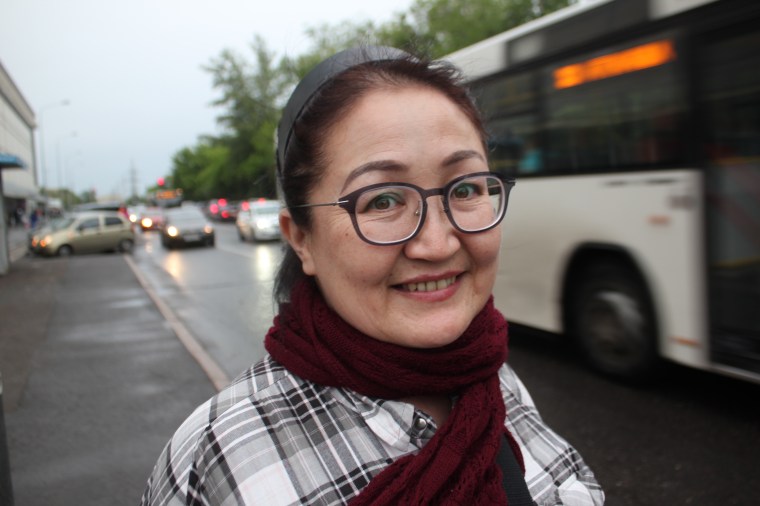Stockholm, April 29, 2021 – Kazakh authorities should not contest the appeal of journalist Aigul Utepova and should allow her to report and comment on the news without restriction, the Committee to Protect Journalists said today.
Today, the Saryarkinskiy District Court in the capital, Nur-Sultan, convicted Utepova of participating in two banned political groups, sentenced her to one year of “restricted freedom,” and banned her from conducting “public and political activities” for two years, according to news reports, a video recording of the court proceeding, and the journalist and her lawyer, Galym Nurpeisov, both of whom spoke to CPJ via messaging app.
Utepova denied the charges, and she and her lawyer told CPJ that they believe the case was an attempt to silence her reporting critical of state authorities. Utepova said she plans to appeal the ruling.
Utepova worked as a correspondent for the Kazakh news website Newtimes.kz until 2019, when she started the independent political news and commentary outlet Aigul TV, which has about 8,000 subscribers on YouTube and 1,000 on Instagram, according to CPJ research. She also posts political news and commentary on her Facebook page, where she has about 8,000 followers.
“Kazakh authorities’ conviction of journalist Aigul Utepova on trumped-up charges once again demonstrates how the country’s laws banning so-called extremist groups are routinely used to stifle political dissent,” said Gulnoza Said, CPJ’s Europe and Central Asia program coordinator, in New York. “Authorities should overturn this baseless sentence on appeal, and ensure that Utepova’s rights to conduct investigative journalism and express critical opinions are fully respected.”
The year of “restricted freedom” bars Utepova from leaving her home except for work and to complete 100 hours of compulsory labor, which was also issued as part of her sentence, according to the journalist, her lawyer, and the court video.
The two-year ban on public activities effectively makes it illegal for Utepova to work as a journalist during that time, according to those sources. Nurpeisov told CPJ that Utepova will be placed on the state’s unpublished list of “extremists,” which could prevent her from accessing her bank accounts for six years.
Nur-Sultan police arrested Utepova on September 17, 2020, and authorities charged her with participating in two banned political groups, the Democratic Choice of Kazakhstan and Party of the Street, according to CPJ’s research; she has been held under house arrest since then. Both organizations are designated “extremist” in Kazakhstan but have been classified as “peaceful opposition movements” by the European Parliament.
From November 23 to December 11, authorities held Utepova in the City Center of Psychological Health in Nur-Sultan for a mandatory mental health evaluation, which she told CPJ she believes was retaliation for her journalistic work.
During Utepova’s trial, prosecutors cited social media posts by Utepova that allegedly supported those banned organizations and exiled politician Mukhtar Ablyazov, whom Kazakh authorities accuse of involvement in both groups, according to case documents reviewed by CPJ and video recordings of the court proceedings.
Utepova and her lawyer argued that the prosecution had failed to prove that Utepova had supported those groups, let alone participated in them, and said that she covered their activities as a journalist. They also said that allegations that Utepova supported the Party of the Street prior to a May 2020 ban on the group, which came into force the following month, were irrelevant, because the group was not banned at the time.
Utepova and her lawyer also challenged the prosecution’s heavy reliance on testimony from a doctoral student, whom Nurpeisov argued was not qualified to give expert testimony. Nurpeisov further objected that experts were appointed by the prosecution rather than a court, in contravention of a decree by the Supreme Court. In the court video, Judge Ibragim Alkenov is seen concluding that Utepova’s guilt was “fully demonstrated” by the evidence and the “expert” testimony.
According to news reports, studies, and Nurpeisov, who regularly defends individuals charged with affiliating with extremist groups, acquittals in such cases are extremely rare.
CPJ emailed the Kazakh Ministry of Interior for comment, but did not receive any response.
[Editors’ note: This article has been changed in its sixth paragraph to correct the number of hours of compulsory labor Utepova is required to complete.]
